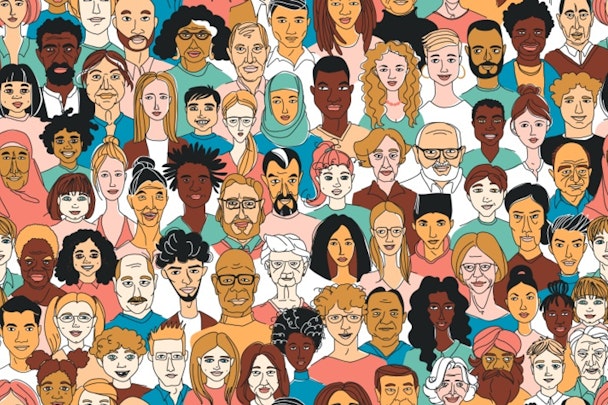What 2020 taught O2’s Laura Lesser: ‘Where brands spend their money matters’
2020 has been an education for all of us. So as we approach the end of a year like no other, we’re asking media and marketing luminaries to share with us their biggest work lessons of the last 12 months. Today, Laura Lesser, head of culture and innovation at O2 and a member of the Conscious Ad Network, says 2020 has been a lesson in why brands must be more aware of where their media spend is going.

'In 2021, brands will be looking to support more under-represented voices'
Over the months, Covid-19 has brought about years of change in the way companies do business and has accelerated a shift to digital technology for many, particularly the over 50s – a group often ignored by advertising despite its spending power and influence. The digital space will gain even more investment and become even more crowded.
With this, advertisers must take responsibility for where their budgets are being spent, which makes organisations like the Concious Ad Network (Can), that adhere to manifestos around anti-ad fraud, fake news and hate speech, become even more important. There can be huge reputational risks for anyone who doesn’t – for example, media funding climate change denial and misinformation, or white supremacist hate speech.
As a result, I also feel that brands will be looking to support more under-represented voices, fund positive news and high quality partnerships to help cut through the noise and be more meaningful for their audiences in the coming year.
O2’s agency Havas Media Group (also a member of Can) recently launched the Social Equity Marketplace to help support minority voices with digital paid media investment. We’re looking forward to exploring the opportunities here with Havas. We need to consider how, as brands, we can provide real value, including where we consciously invest our media.
The events of 2020 have shone a light on huge inequalities and discontent within society. There have been some brilliant moments of people coming together, including supporting initiatives like ’Brand Share The Mic’, Black History Month and the recent anti-racist rallying behind Sainsbury’s TV ad.
In 2021, trust will continue to grow in importance and it will be the year that brands need to take bigger action and make commitments to drive meaningful change, beyond one-off statements or programmes.
This ranges from corporate social responsibility initiatives through to where brands spend their media money and how they ensure their advertising is representing their customers. For example, at O2 we have partnered with Hubbub to support the most vulnerable who are digitally disconnected from others by donating devices and free connectivity. We’ve also renewed our sponsorship of the England Rugby Team, pledging to equally fund the men’s and women’s game.
Sustainability with a focus on tackling climate change will also be a big focus for the industry with COP26, the United Nations’ Climate Change Conference set to take place in Glasgow in November 2021.
Many companies still need to step up to pledge action and look at their supply chains in this area. It’s great to see companies like Brewdog taking bold steps, pledging to be carbon negative and plant 1m trees, with the ambition to remove twice as much carbon from the air than it emits each year.
I’d love to see more companies make a commitment here. There are tools out there to help and there’s a massive business case for going green. For example, at O2 we launched a Green Savings Calculator which helps businesses to identify ways to reduce their carbon footprint and save money with long-term flexible working.
Finally, being truly audience-first needs to be an area of focus for the industry. Gen Z now makes up 41% of the world’s population and are a key customer now and in the future. I think 2021 will be time for brands to take this audience and the conscious customer seriously and to look at how they can be relevant to their lives beyond traditional advertising.
